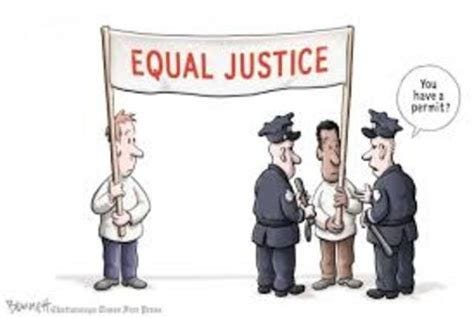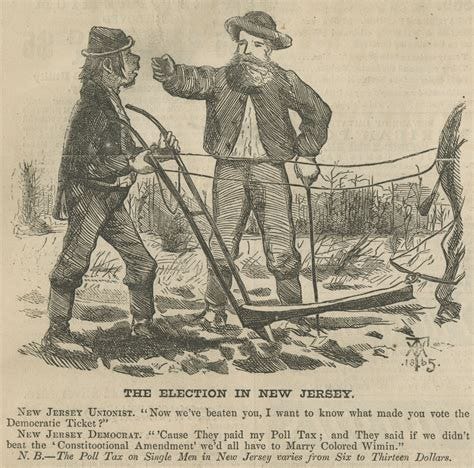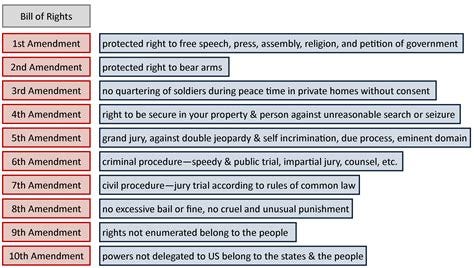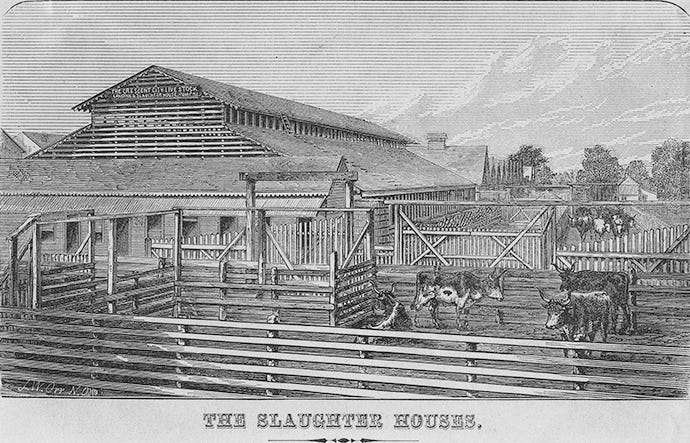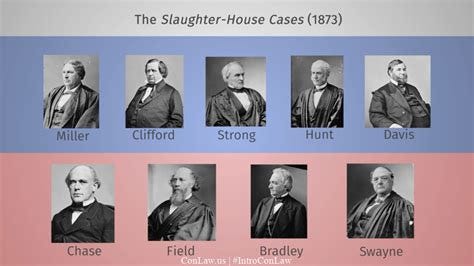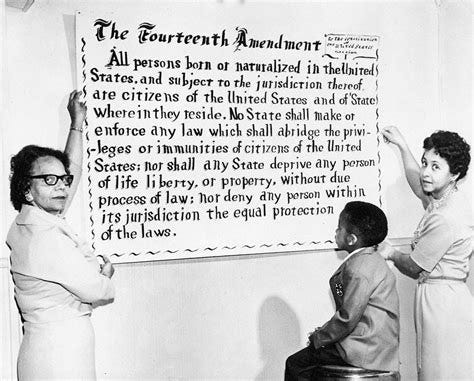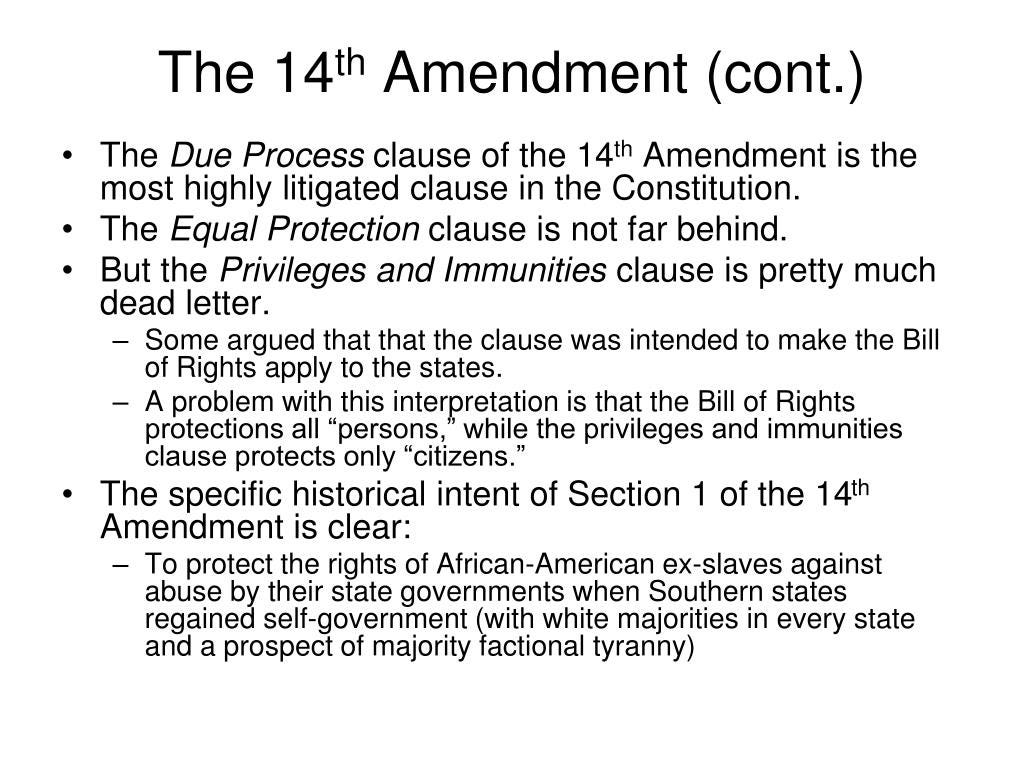How SCOTUS replaced the Constitution's list of Rights with its own
The Supreme Court canceled the “Privileges and Immunities” clause of the 14th Amendment because it identifies the Bill of Rights as what courts can protect, and courts prefer their OWN “rights”
To protect the rights of African-American ex-slaves against abuse by their state governmentsSCOTUS (Supreme Court Of The United States) acts like a perpetual constitutional convention, constantly turning parts of the Constitution into its opposite, then changing its mind and going in reverse. Like a June bug near a porch light constantly slamming its head against the nearest wall, SCOTUS precedents keep slamming against reality and changing directions, keeping the country guessing what “fundamental rights” it will create or redefine out or existence next.
So said Justice Clarence Thomas in several Concurrences, except without the June Bug metaphor. He gave the reason: “substantive due process”. That phrase, not found anywhere in the Constitution, is the phrase SCOTUS made up to give itself authority to ignore constitutional rights it doesn’t like, while making up never-before-imagined “rights”. Thomas didn’t also say, but it is true, that among SCOTUS’ made-up “rights” are “rights” from Hell that violate the Constitution, defy the superior authority of Congress, and blaspheme the laws of God.
Big Word Alert
Privileges and Immunities. The list of rights found in the first eight Amendments to the Constitution.
Substantive Due Process. A phrase not found in the Constitution, made up by SCOTUS to justify making up “fundamental rights” not in the Constitution, while rejecting rights listed in the Constitution.
Incorporated. SCOTUS picks and chooses rights to protect, and then claims to have “incorporated” them into the rights that the “Due Process” clause supposedly protects.
Thomas called “Substantive Due Process” a “legal fiction”. It is squeezed like water out of a rock from the third clause of the 14th Amendment, referred to as the “due process” clause. He pointed out that like the nearly identical clause in the 5th Amendment, it means that everyone should have access to the same legal procedures in court as “important people” have. For example right to trial by jury, right to a lawyer, etc. It is about how to protect your rights. It isn’t about what your rights are. The second clause, referred to as the “privileges or immunites” clause, identifies what your rights are. But SCOTUS says that clause has no meaning, leaving SCOTUS to identify rights from a clause which identifies no right but at least places no limit on SCOTUS’ imagination.
14th Amendment, Section One:
All persons born or naturalized in the United States, and subject to the jurisdiction thereof, are citizens of the United States and of the State wherein they reside.
No State shall make or enforce any law which shall abridge the privileges or immunities of citizens of the United States;
nor shall any State deprive any person of life, liberty, or property, without due process of law;
nor deny to any person within its jurisdiction the equal protection of the laws."
Thomas explained this and more in concurrences in Dobbs v. Jackson (2022), McDonald v. City of Chicago (2010), and United States v. Carlton, 512 U.S. 26 (1994, in which he joined Justice Scalia)
In Carlton, Thomas and Scalia said “ ‘substantive due process’ ” is not “a constitutional right” but “rather...an oxymoron”....The picking and choosing among various rights to be accorded ‘substantive due process’ protection is alone enough to arouse suspicion....”
In McDonald, the “holding” [essential ruling] of the majority was: “Issue: Whether the Privileges or Immunities Clause of the Fourteenth Amendment requires the application of the Bill of Rights in its entirety to state and local governments. Holding: No. The holding in the Slaughter-House Case remains in effect, and incorporation is the appropriate way to selectively [by “picking and choosing”] apply provisions [enforce rights] in the Bill of Rights beyond the federal government [not just when the federal government fails to protect rights but also when state governments fail].”
He said Courts can’t even decide what “substantive due process” even means:
“...our cases continue to adhere to the view that a right is incorporated through the Due Process Clause only if it is sufficiently “fundamental,”...—a term the Court has long struggled to define.”
For example,
“this Court has at times concluded that a right gains ‘fundamental;’ status only if it is essential to the American ‘scheme of ordered liberty’ or ‘deeply rooted in this Nation’s history and tradition...’ ” A more recent example than what he gave in that 2010 concurrence was Dobbs v. Jackson (2022) which said an abortion “right” was not “deeply rooted in this Nation’s history and tradition”.
But other times, Thomas reminded us, courts rule the opposite, as in inventing the “right” for sodomites to marry:
“the Court has just as often held that a right warrants Due Process Clause protection if it satisfies a far less measurable range of criteria, see Lawrence v. Texas, 539 U. S. 558, 562 (2003) [which declared] that the Due Process Clause protects ‘liberty of the person both in its spatial and in its ’).”
“More transcendent dimensions”, indeed! Does that sound vaguely “religious”?
Remember that the only jurisdiction that any federal authority has over how states deal with the rights of their own citizens, that doesn’t affect other states, is through the 14th Amendment. The Amendment limits the rights that may be protected to those listed in the Constitution, called “privileges and immunities”. Furthermore, Section 5 assigns enforcement to Congress. Courts aren’t mentioned.
No wonder Thomas wrote
“All of this is a legal fiction...a particularly dangerous one....This Court’s substantive due process framework fails to account for both the text of the Fourteenth Amendment and the history that led to its adoption, filling that gap with a jurisprudence devoid of a guiding principle...[that is, without] predictability....”
Thomas wrote pages of history proving that the phrase “privileges and immunites” was universally understood to mean the rights listed in the first eight Amendments to the Constitution, called the Bill of Rights. He quotes newspapers, debates of the framers of the 14th Amendment, court cases, treaties, and “two of the era’s major constitutional treatises”. He goes back before the Bill of Rights, showing where the phrase was used to mean basic fundamental rights in the First Continental Congress and in Blackstone.
Thomas said that evidence was not new to SCOTUS. He cited an appendix 63 years before which you can read at https://supreme.justia.com/cases/federal/us/332/46/. Here is Thomas’ reference to it:
Statements made by Members of Congress leading up to, and during, the debates on the Fourteenth Amendment point in the same direction. The record of these debates has been combed before. See Adamson v. California, 332 U. S. 46, 92–110 (1947) (Appendix to dissenting opinion of Black, J.) (concluding that the debates support the conclusion that §1 was understood to incorporate the Bill of Rights against the States)
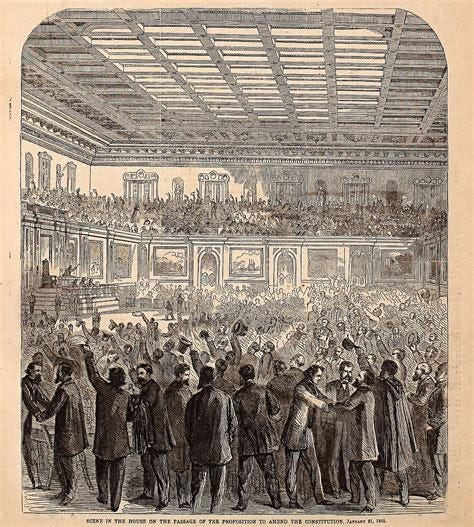
Thomas cites the Civil Rights Act of 1871, 17 Stat. 13, pass just three years after the 14th Amendment was ratified. It is still today in the U.S. Code as Rev. Stat. 1979, 42 U. S. C. §1983. Thomas marveled that it enforces the Bill of Rights against rights-trampling states, an obvious fact which SCOTUS refused to acknowledge before 1961, and yet still in 2010 here he is writing in disagreement with the majority holding that “the Privileges or Immunites Clause of the Fourteenth Amendment” does NOT] require the application of the Bill of Rights in its entirety to state and local governments.” Thomas said that 1871 Civil Rights law, still in effect,
“prohibits state officials from depriving citizens of ‘any rights, privileges, or immunities secured by the Constitution.’ Although the Judiciary ignored this provision for decades after its enactment, this Court has come to interpret the statute, unremarkably in light of its text, as protecting constitutionally enumerated rights. Monroe v. Pape, 365 U. S. 167, 171 (1961)....”
Here again is the opening holding statement of McDonald (2010). Notice what it says about Slaughterhouse Cases:
Issue: Whether the Privileges or Immunities Clause of the Fourteenth Amendment requires the application of the Bill of Rights in its entirety to state and local governments. Holding: No. The holding in the Slaughter-House Case remains in effect, and incorporation is the appropriate way to selectively [by “picking and choosing”] apply provisions [enforce rights] in the Bill of Rights beyond the federal government [not just when the federal government fails to protect rights but also when state governments fail].”
What Thomas wrote about that rights-crushing Slaughterhouse Cases precedent follows.
The Dark History of Courts Neutralizing Constitutional Rights
Every other American legal authority understood that the 14th Amendment, ratified only five years before, authorized Congress to enforce constitutional rights – the Bill of Rights – in states where they were being trampled. But not Supreme Court judges. No, the smartest judges in the world – no, the whole universe – said the Bill of Rights can’t be enforced against rights-trampling states because they are ancient fundamental rights which existed before there was even a Constitution. The enforcement of those wonderful fundamental rights must therefore be entrusted to states.
You may wonder to yourself, “how did they come up with that? The purpose of the 14th Amendment was to protect blacks in Southern states where their rights were ruthlessly trampled. SCOTUS’ reasoning would make slavery legal again if it weren’t for the 13th Amendment specifically outlawing slavery. It keeps murder of babies legal in states that vote to keep it legal!”
You can keep wondering, because an explanation of this reasoning, which the 2010 McDonald ruling orders to be set in concrete, is logically impossible. But here is Justice Thomas’ halting effort to make sense of it:
Slaughterhouse Cases and Cruikshank – The Colfax Massacre
My conclusion is contrary to this Court’s precedents, which hold that the Second Amendment right to keep and bear arms is NOT a privilege of United States citizenship. ....
Wha-?
This Court rejected the butchers’ claim, [which was not about guns but about guts: the “right” to continue dumping their waste into the Mississippi River upstream from New Orleans] holding that their asserted right was not a privilege or immunity of American citizenship, but one governed by the States alone. The Court held that the Privileges or Immunities Clause protected only rights of federal citizenship—those “which owe their existence to the Federal government, its National character, its Constitution, or its laws,” id., at 79—and did not protect any of the rights of state citizenship, id., at 74. In other words, the Court defined the two sets of rights as mutually exclusive.
After separating these two sets of rights, the Court defined the rights of state citizenship [over which state legislatures alone have jurisdiction] as “embrac[ing] nearly every civil right for the establishment and protection of which organized government is instituted”—that is, all those rights listed in Corfield. 16 Wall., at 76 (referring to “those rights” that “Judge Washington” described). That left very few rights of federal citizenship for the Privileges or Immunities Clause to protect. The Court suggested a handful of possibilities, such as the “right of free access to [federal] seaports,” protection of the Federal Government while traveling “on the high seas,” and even two rights listed in the Constitution. Id., at 79 (noting “[t]he right to peaceably assemble” and “the privilege of the writ of habeas corpus”);....
What made this evisceration of the 14th Amendment as Dark as Hell was its use three years later when the issue was not the slaughter of meat but the slaughter of men – black Republicans who had been slaves eight years before. The same court that said slaughterers of meat could not dump their guts in the river upstream from a major city, only three years later said the KKK slaughterers of men could dump the whole corpses of 15-20 men in the same river upsteam from the same major city without any SCOTUS opposition. [Colfax is along the Red River which fed into the Mississippi.] That same court said the refusal of Louisiana district and state courts to prosecute even one of the 300 white Democrats who murdered nearly 165 black Republican “niggers” - most after they surrendered but some by burning down the courthouse they were defending while several were in it, could not be appealed to the Supreme Court based on the 14th Amendment!
I have to confess that whenever I write about these events, peace leaves me. Whether of the photos of slaughtered babies, the stories of tortured Christians, or the tyranny of white Democrats over slaves before 1865 and over black Republicans after. And all this, giving the middle finger to God. I cringe and shudder and long for people who love God and hate evil to arise and bridle the courts who still perpetuate such evil. I wonder what Thomas feels as he writes about these events. Here is his description of them:
In the Slaughter-House Cases, 16 Wall. 36 (1873), decided just five years after the Fourteenth Amendment’s adoption, the Court interpreted this text, now known as the Privileges or Immunities Clause, for the first time. In a closely divided decision, the Court drew a sharp distinction between the privileges and immunities of state citizenship and those of federal citizenship, and held that the Privileges or Immunities Clause protected only the latter category of rights from state abridgment. Id., at 78.
The Court defined that category to include only those rights “which owe their existence to the Federal government, its National character, its Constitution, or its laws.” Id., at 79. This arguably left open the possibility that certain individual rights enumerated in the Constitution could be considered privileges or immunities of federal citizenship. See ibid. (listing “[t]he right to peaceably assemble” and “the privilege of the writ of habeas corpus” as rights potentially protected by the Privileges or Immunities Clause).
But the Court soon rejected that proposition, interpreting the Privileges or Immunities Clause even more narrowly in its later cases. Chief among those cases is United States v. Cruikshank, 92 U. S. 542 (1876). There, the Court held that members of a white militia who had brutally murdered as many as 165 black Louisianians congregating outside a courthouse had not deprived the victims of their privileges as American citizens to peaceably assemble or to keep and bear arms. Ibid.; see L. Keith, The Colfax Massacre 109 (2008). According to the Court, the right to peaceably assemble codified in the First Amendment was not a privilege of United States citizenship because “[t]he right . . . existed long before the adoption of the Constitution.” 92 U. S., at 551 (emphasis added).
Similarly, the Court held that the right to keep and bear arms was not a privilege of United States citizenship because it was not “in any manner dependent upon that instrument for its existence.” Id., at 553. In other words, the reason the Framers codified the right to bear arms in the Second Amendment—its nature as an inalienable right that pre-existed the Constitution’s adoption—was the very reason citizens could not enforce it against States through the Fourteenth.
That circular reasoning effectively has been the Court’s last word on the Privileges or Immunities Clause. [Including in the 2010 ruling in which Thomas’ concurrence is recorded.]
According to [Cruikshank, 1876], the right to peaceably assemble codified in the First Amendment was not a privilege of United States citizenship because “[t]he right . . . existed long before the adoption of the Constitution.” ...Similarly, the Court held that the right to keep and bear arms was not a privilege of United States citizenship because it was not “in any manner dependent upon that instrument for its existence.”
Just as the right to “free expression” of religion (an “enumerated” right) has been canceled with a perverted theory of Establishment of Religion “incorporated” through the “Due Process” clause, the right to life (an “enumerated” right) of babies has been canceled by the made-up right to murder babies, called Abortion, a “right” imagined arising from the Due Process clause.
What makes made-up rights supposedly available through the Due Process clause (instead of enforcing rights listed in the Constitution as the Amendment obviously intended) not only unconstitutional but thoroughly evil is how the scheme got started: in the face of all logic, justice, law, and the laws of God, it was invented to get a KKK leader off for his part in the slaughter of up to 165 black Republicans trying to defend a courthouse after election fraud by Democrats, after which the white Democrats burned down the courthouse. The crushing of the 14th Amendment’s enforcement of “privileges and immunities” was the wrath of Hell against blacks for over 50 years beginning in 1873, against God for 60 years beginning in 1963, and against babies for 50 years beginning in 1973. It violates law, the Constitution, and the laws of God.
~ ~ ~ ~ ~ ~
The following image from slideserve.com is an example of rhetoric in support of SCOTUS precedents ironically validates Thomas’ criticism of SCOTUS.
It calls the “privileges and immunites” clause “pretty much a dead letter”.
It calls the “due process” clause “the most highly litigated clause in the Constitution”, which confirms the arbitrary character of “substantive due process” doctrine which makes its cases so unpredictable.
It says only “some” thought the Bill of Rights was supposed to be applied to the states, and gives an irrational explanation of the “problem” with that:
“A problem with this interpretation is that the Bill of Rights protections all “persons,” while the privileges and immunities clause protects only “citizens.”
Uh, aren’t “citizens” “persons”?
The graphic jumps into another weird SCOTUS doctrine used to evade protecting blacks: the idea invented especially to acquit Cruikshank that the 14th Amendment only protects blacks from tyrannical state laws, but not from individual terrorists winked at but not directly, openly supported by state legislatures. SCOTUS calls it the “state action doctrine”, and it is still SCOTUS doctrine!
The following graphic alludes to it by imposing it like a straight jacket on the “purpose” of the 14th Amendment. It states that purpose is:
To protect the rights of African-American ex-slaves against abuse by their state governments


